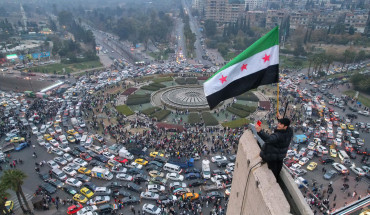This paper is part of a MEI scholar series titled “The Middle East and the 2016 Presidential Elections."
Summary
The Middle East and the transnational threats it has spawned have been a focal point of debate among U.S. presidential candidates in 2016, suggesting the region’s turmoil will demand time, diplomacy and resources irrespective of who wins office. While the region’s various conflicts receive the attention of presidential hopefuls, the key question of democracy promotion and human rights in the Middle East is being neglected or even scorned. All candidates have thus far shared a reluctance in becoming too entrenched in the Middle East’s woes, but failing to address the dearth of democracy and personal liberties in the region, and pursuing a military-only approach, will not resolve the region’s instability. Charles W. Dunne, MEI scholar and former U.S. diplomat, argues that the next U.S. administration should steer its policy toward democracy promotion across the region.
Key Points
- Demands for democracy and greater political space will return in the Middle East. Old methods of repression will not hold back the tide
- The factors that spawned the Arab Spring remain in place, which should deeply concern U.S. policymakers
- U.S. interest in stabilizing the region requires addressing the underlying causes of instability, including a lack of democracy and political participation
- The next administration should increase funding for civil society in the region, among other democratization tools, and broadly endorse the opening of political space and respect for human rights
- The United States should condition its military assistance to regional allies on improving human rights and democratic reform
Read the full Policy Focus Paper.
The Middle East Institute (MEI) is an independent, non-partisan, non-for-profit, educational organization. It does not engage in advocacy and its scholars’ opinions are their own. MEI welcomes financial donations, but retains sole editorial control over its work and its publications reflect only the authors’ views. For a listing of MEI donors, please click here.














